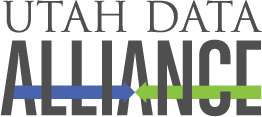Data Mining Meets Medical & Educational Records – Privacy is Gone

A few weeks ago I opened my mail and this letter was enclosed. I was astounded. Could this be real?
It’s like a page ripped out of a dystopian futuristic novel.
Uglies series by Scott Westerfeld anyone?
Genetic modifications for thinness?
We need 100 thin people?
What concerned me most, however was how they got my information in the first place.
“We are contacting you for this study through a medical research organization at the University of Utah called the Resource for Genetic and Epidemioloic Research (RGE). The RGE helps medical researchers at the University of Utah to access information from State records. You are being contacted to participate in this study because it appears that from the recorded pre-pregnancy weights of one of your children’s birth certificates that you may meet our definition of being thin and that other members in your extended family are also thin.”
How do they know this?
From mining State records and medical information…
What about HIPAA?
What about Utah Code Annotated, Title 26, Chapter 2, Section 22 that protects birth certificates as PRIVATE information?
Extended family members?
Are they making a pedigree chart?
Yes, yes they are. By executive order. Since 1982.
“The Utah Resource for Genetic and Epidemiologic Research (RGE) was established by Executive Order of the Governor of Utah on July 14, 1982, as a “data resource for the collection, storage, study, and dissemination of medical and related information”…”RGE governs access to the Utah Population Database (UPDB), which includes family history records, vital records, cancer registry records, driver license records, and others. These records are linked together to form multi-generational pedigrees as well as longitudinal person-level data.”
This letter is where we are as a society. It’s like some creepy futuristic dystopian novel.
Unreal.
Genetically modified traits for “thinness” based on data mining and research. Datapalooza? Data mining?
Hard to believe….until it showed up in my mailbox.
People ask me all the time why I am concerned about data mining in our schools and elsewhere. Here is a prime example of just how Orwellian things have become.

Each time you register your child for public school you bring in a birth record, you offer up their social security number in some cases, the exact place to find them, their confidential medical info. Their personally identifiable information. This PII is now being shared and stored in a statewide logitudinal database system or SLDS. (See page 13-on of the UTREx data file specs to get a glimpse of just HOW MUCH info is being collected and stored)
The data is maintained by the Utah Data Alliance, and ultimately it gets served up from your local school nightly, via data portals UTREx and TIDE to the State, to Washington D.C., and is available to private corporate vendors with a “research interest.”
The Utah Data Alliance is a multi-agency collaborative partnership organized to:
Develop and maintain Utah’s only comprehensive statewide longitudinal data system (SLDS) to enable examination of educational progress and outcomes over time, from preschool, and K12 through postsecondary public education and into the workforce;
This is a national effort. A data mining goldmine where all states, systems align. If each state has an SLDS and they can collaborate, imagine how far reaching our data can spread.
“Better decisions require better information. This principle lies at the heart of the Statewide Longitudinal Data Systems (SLDS) Grant Program. Through grants and a growing range of services and resources, the program has helped propel the successful design, development, implementation, and expansion of K12 and P-20W (early learning through the workforce) longitudinal data systems. These systems are intended to enhance the ability of States to efficiently and accurately manage, analyze, and use education data, including individual student records. The SLDSs should help states, districts, schools, educators, and other stakeholders to make data-informed decisions to improve student learning and outcomes; “
“The long-term goal of the [SLDS] program is to enable all States to create comprehensive systems that permit the generation and use of accurate and timely data, support analysis and informed decision-making at all levels of the education system, increase the efficiency with which data may be analyzed to support the continuous improvement of education services and outcomes, facilitate research to improve student academic achievement and close achievement gaps, support education accountability systems, and simplify the processes used by State educational agencies to make education data transparent through Federal and public reporting.” – U.S. Department of Education, 2009
See the correlation between what is happening in my letter and what is happening in most schools across the nation?
Each time your child logs on to Utah Compose to practice writing or to take a SAGE (PARCC) exam, their data and response is being stored and shared.

Do you want American Institutes of Research, one of the world’s largest behavioral and social science research and evaluation organizations, having your child’s personally identifiable data? Because they have it.
So does The Department of Workforce Services, The Utah College of Applied Technology, Utah Education Network, the Utah Education Policy Center (at the University of Utah), and the Utah State Office of Education.
Our state has already pre-loaded all student information into the SLDS. Any time a student signs into the SAGE Portal for a formative assignment, practice session or any other testing mechanism, they are providing additional information to their files. The only way to stop the flow of information is to not have them participate at any level. There is no opt out of the statewide logitudinal data system allowed under current law.
The Utah State Office of Education and AIR both contract with other researchers and organizations. That data could fall into alomost anyone’s hands. AIR’s data sharing and research goal is internationally reaching…
AIR’s international work improves the quality of life in developing countries by using rigorous research and evaluation to enhance education and social development. With a wide variety of local partners and multinational organizations, we develop, pilot and implement field-based international development activities in lower- and middle-income countries. We provide governments and international aid agencies with the educational assessment tools and expertise they need to measure progress in student achievement and school effectiveness. Our international work is conducted by AIR’s International Development, Evaluation and Research program, as well as our Education and Health and Social Development programs.
Data being used, all without your knowledge, without informed consent. It’s legal under FERPA.
(Read more here and at the Washington Post.)
The Family Educational Rights and Privacy Act (FERPA) governs the protection and permissible uses by authorized representatives of student administrative data, including the disclosure and transfer of personally identifiable information (PII) in education records. The U.S. Department of Education (ED) released revised regulations December, 2011 to reconcile the statute with other federal laws that incented the development and use of state longitudinal data systems (SLDS):
Opt out.
Slow the data machine.

















